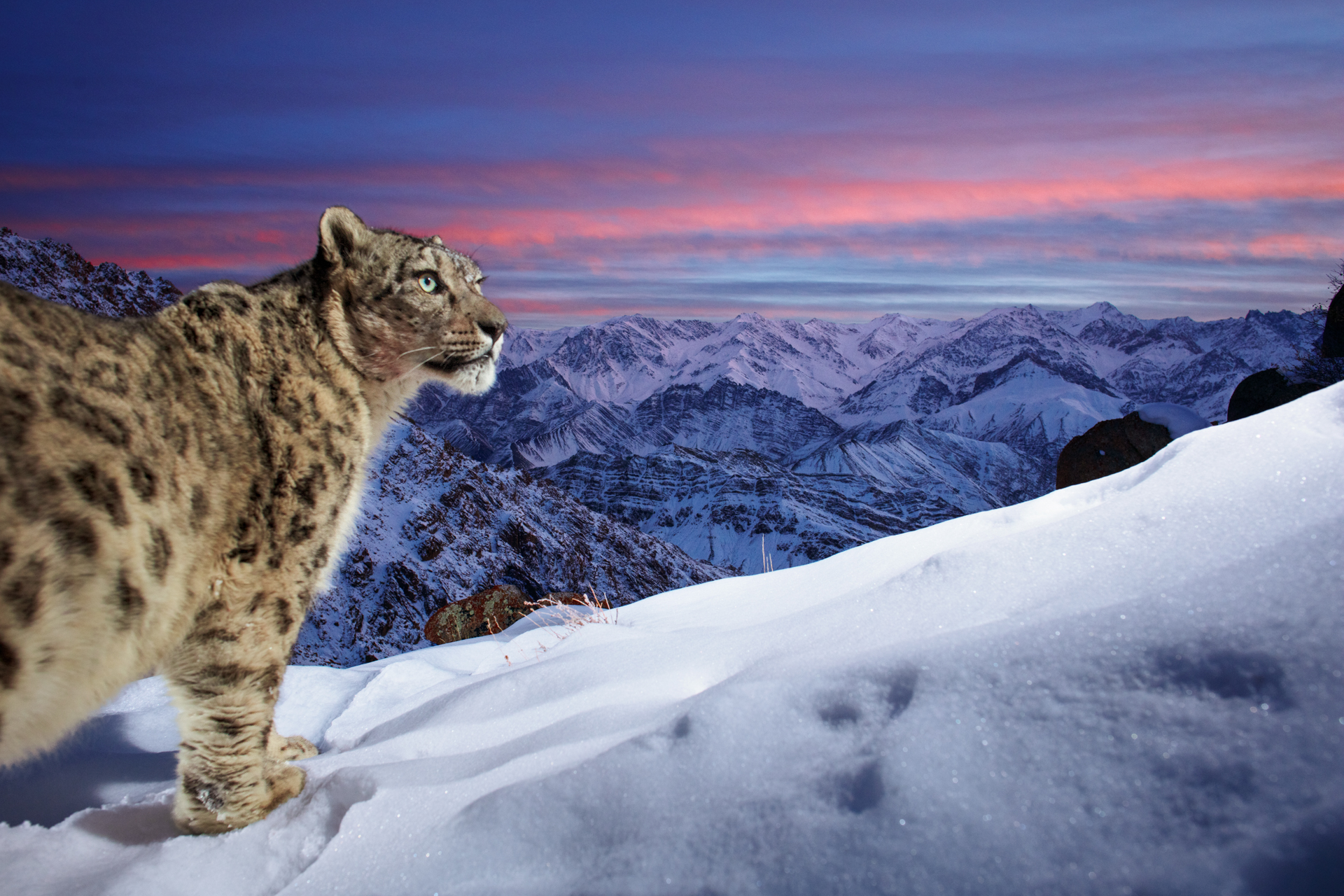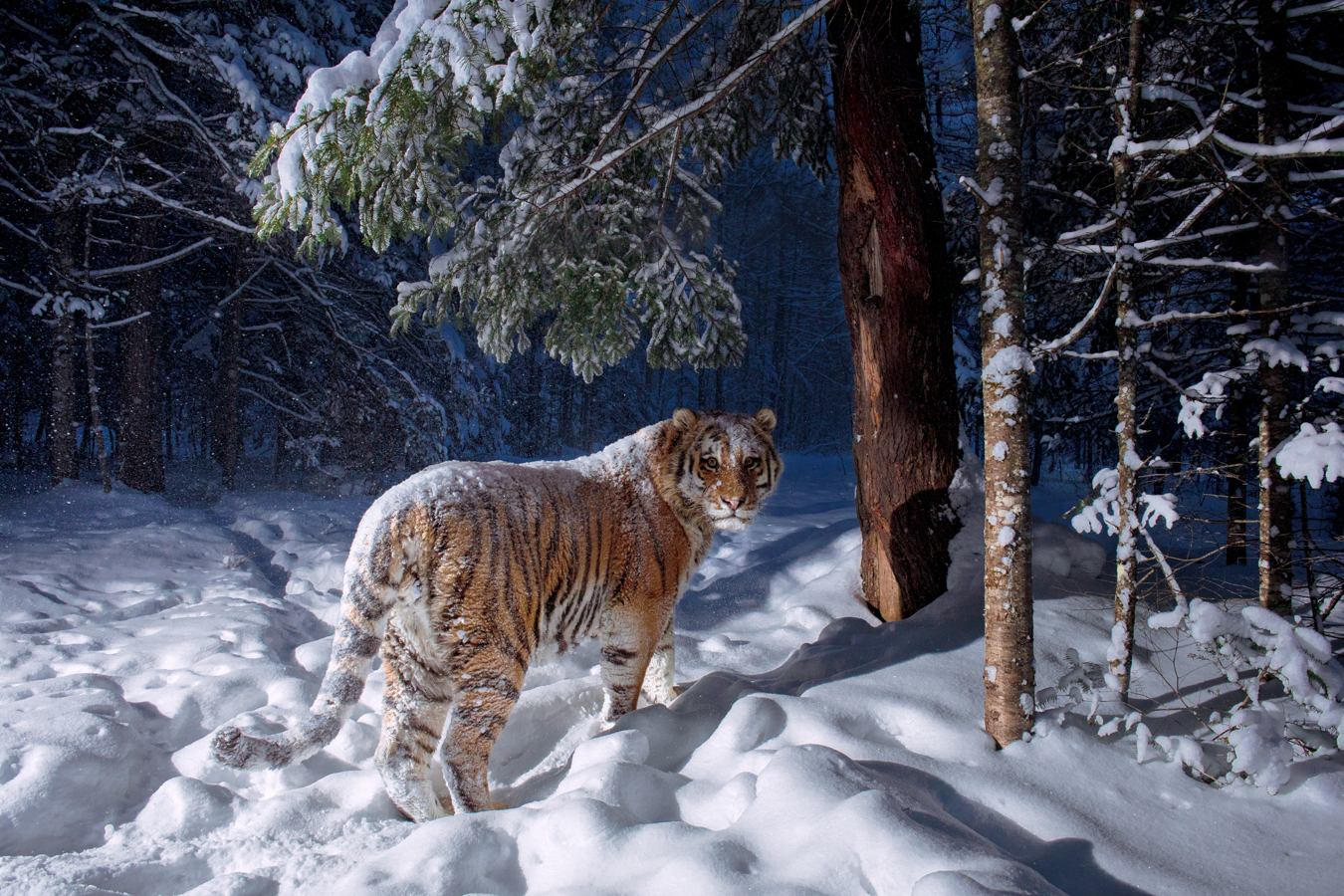Sascha Fonseca
Sascha Fonseca is a celebrated German wildlife photographer specializing in DSLR and mirrorless camera trap technology to capture the intimate lives of some of the world’s most elusive creatures. His fascination with wildlife began long before he took up photography, but it wasn’t until 2018 that he pioneered the use of DSLR camera traps on the outskirts of India’s Ranthambhore Tiger Reserve to photograph Bengal tigers at night. Since then, he has traveled to some of the world’s most remote and challenging regions, focusing particularly on capturing iconic big cats.
Fonseca is known for his patience and persistence, often spending weeks in harsh environments setting up intricate camera trap systems that allow him to photograph animals in their natural habitats without human disturbance. His work highlights the animals’ personalities, focusing on their facial expressions and unique behaviors, especially their eyes, which he finds particularly expressive. This is one reason he is especially drawn to big cats, such as snow leopards, Amur tigers, and other predators. His work often takes him through challenging terrains like the frozen forests of Russia’s Far East and the Himalayan mountains.


In his professional journey, Fonseca has amassed a wealth of experience and recognition. His award-winning work includes the 2022 Wildlife Photographer of the Year People’s Choice Award from the Natural History Museum in London. He also became the first non-Russian photographer to ever win at the prestigious Russian Geographical Society’s annual photo competition. Fonseca’s photography has been featured by major international media outlets, including the BBC and GEO, as well as in the Remembering Wildlife series and The New Big Five. He collaborates with organizations like WWF and the Snow Leopard Trust, using his photography to support wildlife conservation.
Based in Dubai, Fonseca has leveraged the city’s strategic location as a hub for wildlife photography projects across South and Central Asia, East Africa, and Russia’s Far East. Through his camera trap work, he documents not only big cats but also other endangered and rarely seen animals in their natural environments. Driven by a passion for conservation, he aims to raise awareness of wildlife’s plight through his images, advocating for the protection and preservation of these natural habitats. ‘Photography isn’t just a mirror to nature; it’s a bridge. It reaches out, inviting us to connect, to care, and to act. Where the eyes go, the heart will follow.’
